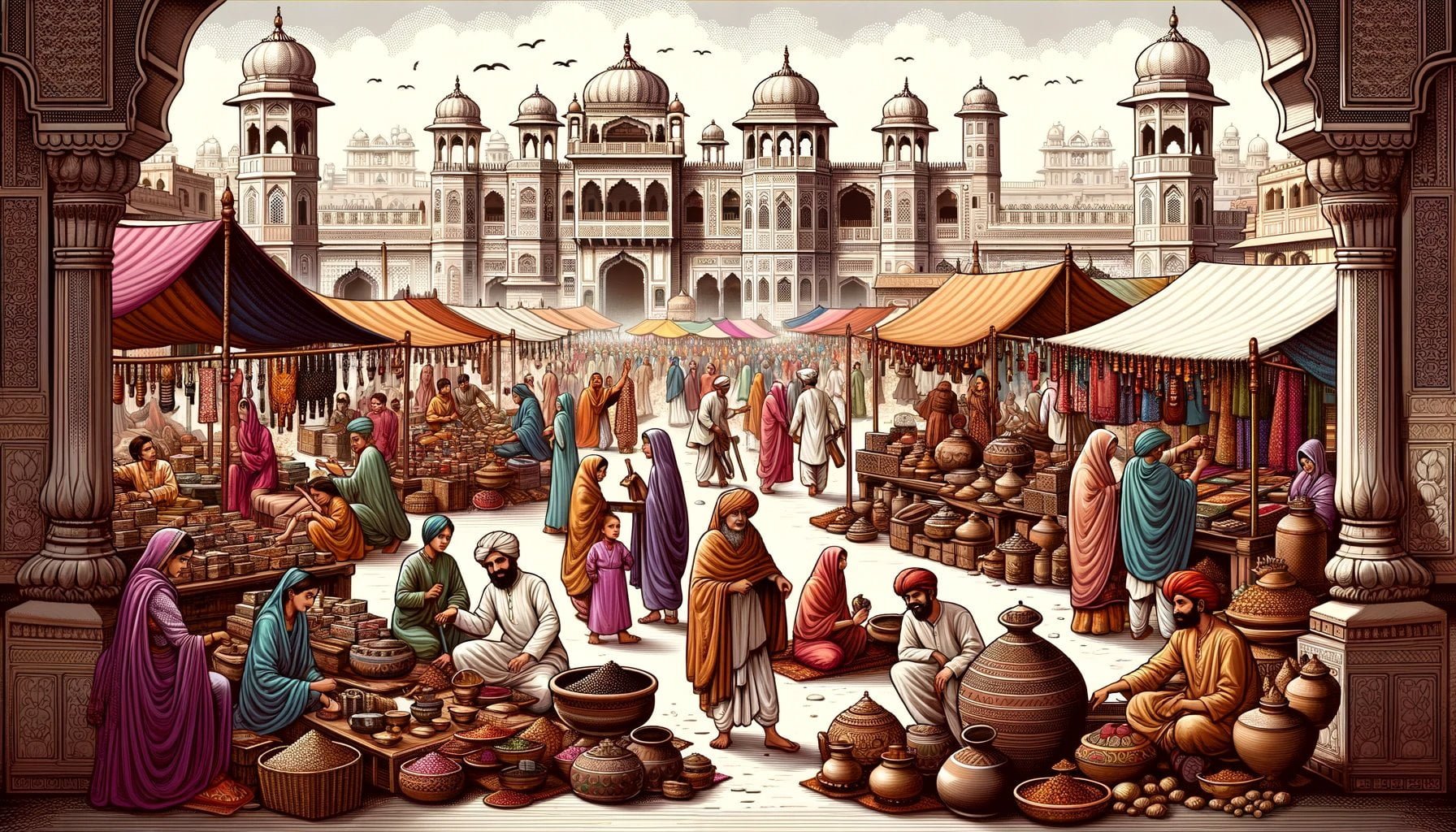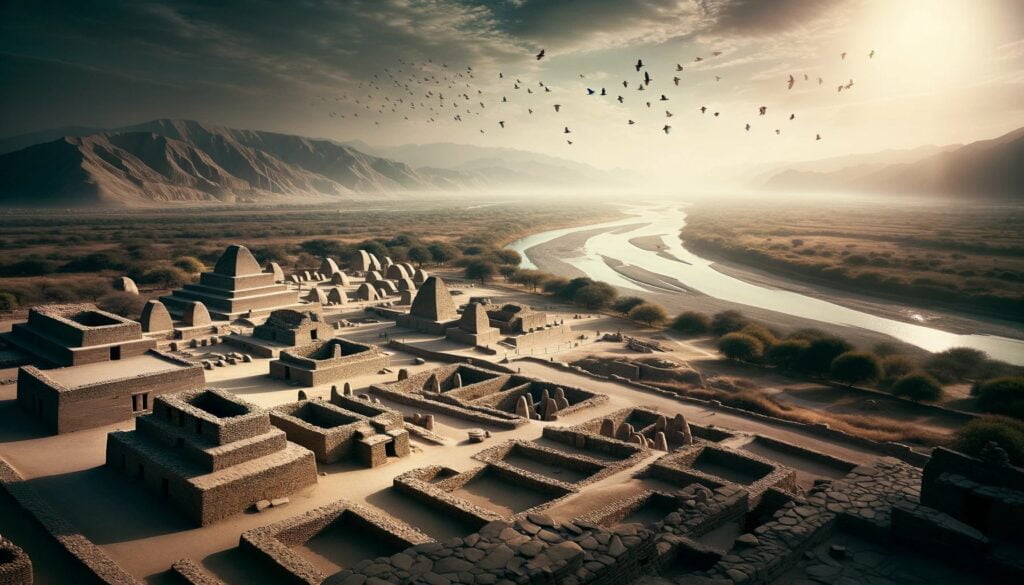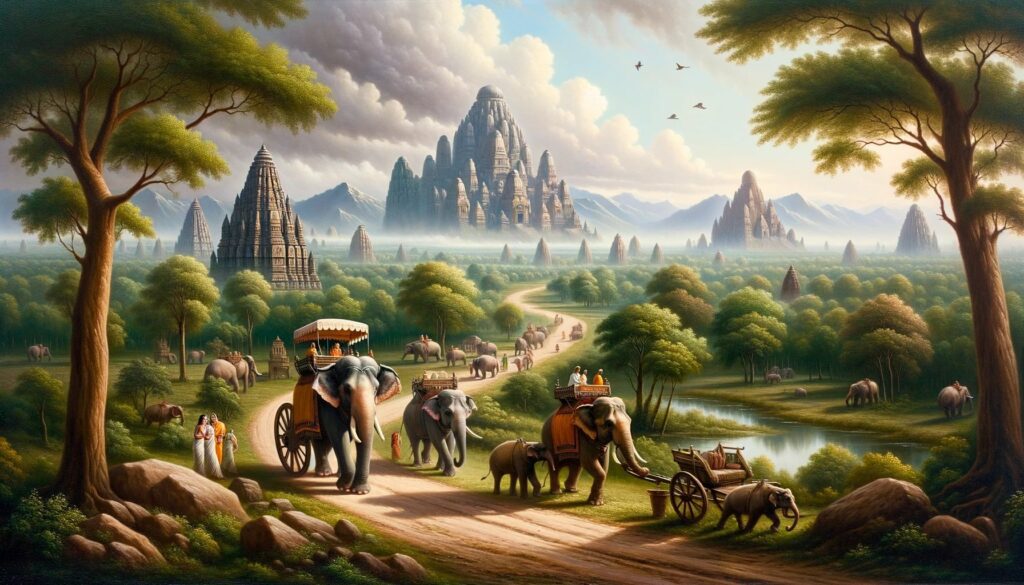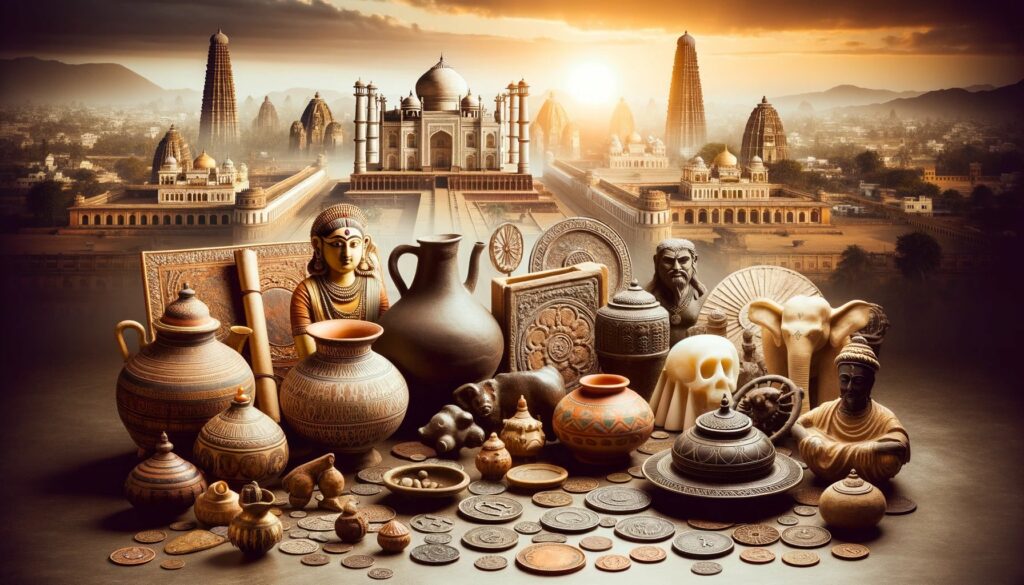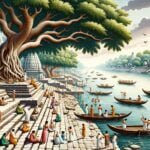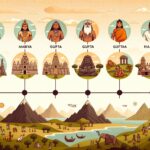Welcome to “India: Uncovering the Oldest Civilization,” where we delve into the fascinating history of India and explore the reasons behind its claim to being the oldest civilization in the world. As we embark on this cultural journey, we’ll venture back in time to discover the ancient wonders of the Indus Valley Civilization and shed light on the remarkable contributions India has made to human civilization. Join us as we unravel the mysteries of India’s past and unveil the extraordinary legacy that has shaped our present world.
Why India is the oldest civilization?
India, a land steeped in history and ancient traditions, holds a significant place in the annals of human civilization. From the arrival of anatomically modern humans to the diverse empires that ruled its territories, India’s rich historical tapestry is filled with fascinating stories and cultural milestones. In this article, we will uncover the reasons why India is regarded as the oldest civilization, tracing its origins back to the earliest human settlements on the subcontinent.
The Dawn of Humanity in India
It is believed that anatomically modern humans first set foot in the Indian subcontinent between 73,000 and 55,000 years ago. These early settlers laid the foundation for the human habitation that would flourish in the millennia to come. As human societies transitioned from nomadic to sedentary lifestyles, the seeds of civilization were sown.
The Indus Valley Civilization: A Testament to India’s Antiquity
Around 7000 BCE, the shift towards sedentariness gave birth to the Indus Valley civilization, one of the earliest urban civilizations in the world. The cities of Harappa and Mohenjo-daro emerged as vibrant centers of trade, agriculture, and technological innovation. This Bronze Age civilization boasted impressive feats of urban planning, with well-structured cities, advanced drainage systems, and evidence of a script that is yet to be fully deciphered.
Indo-Aryan Migration and the Vedic Period
Starting around 1900 BCE, waves of Indo-Aryan tribes migrated from Central Asia to the Punjab region, transforming the cultural and social landscape of ancient India. This migration marked the beginning of the Vedic period, characterized by the composition of the Vedas, sacred texts that form the foundation of Hinduism. The Vedic period also witnessed the establishment of the varna system, which played a crucial role in shaping Indian society for centuries to come.
Emergence of New Movements: Jainism and Buddhism
By the 6th century BCE, India gave birth to new religious and philosophical movements. Jainism, founded by Mahavira, preached non-violence and asceticism as the means to attain spiritual liberation. Around the same time, Prince Siddhartha Gautama, later known as the Buddha, expounded the principles of Buddhism, emphasizing the Four Noble Truths and the Eightfold Path to enlightenment. Both Jainism and Buddhism gained followers throughout India and beyond, leaving an indelible mark on the world’s spiritual and philosophical traditions.
Great Empires and Cultural Flourishes
India’s long and storied history saw the rise and fall of powerful empires and dynasties. The Maurya Empire, established by Chandragupta Maurya in ancient India, brought much of the subcontinent under a unified rule. The Gupta Empire, often regarded as a classical or golden age of India, witnessed advancements in various fields, including art, science, mathematics, and literature.
Cultural Diversity and Influence
Throughout the centuries, India’s cultural tapestry grew richer and more diverse. The Tripartite struggle between various powers centered on Kannauj unfolded from the 7th to 11th centuries, showcasing the fierce competition for dominance among regional kingdoms. The Chola dynasty established its supremacy in southern India during the 11th century, leaving behind magnificent temples and a legacy of maritime trade.
Islamic Conquests and the Mughal Empire
The 8th century marked the beginning of Islamic conquests in India, with the Delhi Sultanate and Deccan Sultanates ruling different parts of the subcontinent. These conquests introduced new architectural styles and cultural influences, leading to a fusion of Indo-Islamic art and architecture. In the 16th century, the Mughal Empire, established by Babur, ruled over most of the Indian subcontinent, ushering in a period of proto-industrialization and cultural syncretism.
British Rule and Independence
The 18th and 19th centuries saw the gradual annexation of large regions of India by the British East India Company. Dissatisfaction with British rule culminated in the Indian Rebellion of 1857, a pivotal moment in the struggle for independence. Finally, on August 15, 1947, India gained independence from British rule, leading to the partition of the country into India and Pakistan.
India’s journey through history is a testament to its resilience, diversity, and cultural richness. From ancient civilizations to empires, from profound philosophical movements to struggles for independence, India’s heritage runs deep. The evidence of its antiquity lies in its archaeological sites, historical records, and the enduring traditions and beliefs cherished by its people. So, when we ask, “Why India is the oldest civilization?” it is this remarkable historical legacy that provides the answer.
The story of India’s civilization is one of endurance, innovation, and the countless contributions it has made to the world’s cultural heritage. By understanding and appreciating India’s ancient roots, we gain insights into the complexities of human history and celebrate the indomitable spirit of a land that has stood the test of time.
Ancient Indian civilization is one of the oldest and most fascinating civilizations known to mankind. Its rich history, vibrant culture, and remarkable contributions to various fields such as mathematics, science, and philosophy continue to captivate people worldwide. Explore the wonders of ancient India and delve into its architectural marvels, religious practices, and social structures by clicking here.
Ancient Indian Contributions to Science, Mathematics, and Philosophy
As we delve into the rich tapestry of ancient civilizations, one cannot overlook the profound contributions made by India to the realms of science, mathematics, and philosophy. Through millennia of discovery and profound intellectual exploration, the ancient Indians left an indelible mark on the world with their groundbreaking ideas and innovative concepts. Let us unravel the astonishing achievements that emerged from the Indian subcontinent.
Ancient Indian Mathematics: Unveiling the Secrets
Indian mathematics flourished within the realms of the Indian subcontinent, blending familiar and unique concepts to pave the way for future mathematical developments. The foundation of Indian mathematics finds its roots in the Vedic number words and geometry, which played a significant role in shaping its trajectory.
During the rise of Buddhism and Jainism, mathematics found an intertwining connection with these religions. It was during this transformative period that Indian numerals and the decimal place-value system, concepts that continue to influence modern mathematics today, were conceived.
Throughout the ages, Indian mathematicians propelled the boundaries of human understanding. Their notable contributions spanned varied fields, including trigonometry, algebra, arithmetic, and the fundamental decimal system. Concepts such as the idea of zero, numeral notations, Fibonacci numbers, and even binary numbers can all be traced back to ancient India.
Evidence of the brilliance of Indian mathematicians remains preserved in the annals of history. The oldest known mathematical document produced on the Indian subcontinent, the Bakhshali Manuscript from the 7th century CE, provides valuable insights into the mathematical prowess of the ancient Indians.
Ancient Indian Science: Illuminating the Cosmos
In addition to their mathematical achievements, ancient Indians made significant contributions to science and technology. Their exploration of the cosmos drew upon their mathematical knowledge, enabling accurate astronomical predictions. Their advancements in the field of science laid the foundation for a deeper understanding of our world and its place in the universe.
Over 5,000 years of scientific history in India were influenced by various religions and philosophies, such as Hinduism and Sikhism. The impact and scope of Indian science reverberated globally, shaping the trajectory of human knowledge. Indian civilization gifted the world concepts like the revolutionary number system, the concept of zero, solutions of quadratic equations, rules for negative numbers, and even the basis for calculus.
Ancient Indian Philosophy: A Tapestry of Thoughts
While exploring the contributions of ancient India, it is essential to acknowledge the intertwining relationship between Indian philosophy and Indian mathematics. The civilizations of the Indian subcontinent fostered systems of thought and reflection that continue to shape our understanding of the world today. These philosophical concepts permeated all aspects of ancient Indian life, including the exploration of mathematics and its applications.
The evolution of mathematical subjects in India was rapid during the second half of the ancient period. The organization and classification of mathematical knowledge were meticulously curated, resulting in an intellectual landscape that continues to inspire awe.
Conclusion
India’s rich history unravels the profound contributions made by its ancient civilization to science, mathematics, and philosophy. The inquisitive minds of these ancient scholars laid the groundwork for countless discoveries and concepts that continue to shape our modern understanding. From the groundbreaking concept of zero to the development of the decimal system, Indian advancements in various fields have left an indelible mark on the fabric of human civilization. Embracing the legacy of ancient India’s intellectual achievements allows us to appreciate and learn from the remarkable thinkers who preceded us.
Continuous Cultural and Historical Lineage
India, known for its vibrant culture and deep historical roots, stands as a testament to the continuity of human civilization. With a rich tapestry of traditions, customs, and historical events, it is no wonder that India is often celebrated as one of the oldest civilizations in the world. In this article, we will explore the continuous cultural and historical lineage of India, shedding light on the fascinating journey of this ancient land.
The Indus Valley Civilization: A Glimpse into the Past
When we delve into the annals of India’s history, we encounter the magnificent Indus Valley Civilization. Flourishing in the Indus and Ganges river basin between 2500 BCE and 1900 BCE, this urban culture left behind a trove of evidence that showcases the sophisticated nature of ancient Indian society. Remnants of their well-planned cities, intricate drainage systems, and sophisticated craftsmanship leave an indelible mark, testifying to the ingenuity and brilliance of this early civilization.
The Indus Valley Civilization represents just one chapter in the long and illustrious history of India. However, its existence reinforces the belief that Indian civilization has an age far surpassing what traditional timeline estimations suggest.
A Journey through Time: Unearthing India’s Ancient Roots
To truly appreciate India’s continuous cultural and historical lineage, it is imperative to trace its origins back to the earliest days of human habitation. Archaeological findings and genetic studies indicate that the Indian subcontinent has been inhabited for over 250,000 years, making it one of the oldest regions of human habitation on Earth. The arrival of anatomically modern humans in India around 73,000 to 55,000 years ago marked the beginning of India’s extraordinary journey through time.
The history of India is a tapestry woven with diverse threads, intricately connecting us to our ancestors. From the ancient and mysterious inhabitants of the Indus Valley to the mighty empires that emerged and thrived, the story of India spans millennia and encompasses numerous dynasties, cultures, and religions. The knowledge and wisdom accumulated over centuries have been passed down through generations, nurturing a continuous cultural and historical lineage that persists to this day.
The Significance of Continuous Lineage
What sets India apart from other civilizations is the unbroken chain of cultural and historical traditions that has endured through the ages. This uninterrupted flow of knowledge, practices, and beliefs has shaped the identity of India and reinforced its position as the oldest civilization.
The continuous cultural and historical lineage of India manifests in various aspects of daily life. The diverse traditions, rituals, and festivals celebrated across the country provide a glimpse into the centuries-old customs that have survived the test of time. From Diwali, the festival of lights that symbolizes the victory of light over darkness, to Holi, the joyous celebration of colors, these traditions connect us to our ancient roots and remind us of the enduring spirit that defines India.
Preserving the Past, Shaping the Future
India’s sheer historical and cultural significance demands the utmost care and preservation. Ancient sites, such as the Indus Valley Civilization ruins and the caves of Ajanta and Ellora, serve as living testimonials to India’s remarkable heritage. These archaeological wonders offer us invaluable insights into the lives of our ancestors and shed light on the immense contributions they have made to the progress of human civilization.
As we navigate the complexities of modern life, understanding our roots is crucial. Exploring the continuous cultural and historical lineage of India opens doors to deep introspection and appreciation of our identity. It allows us to honor the legacy of our forefathers while shaping a better future for generations to come.
India, with its rich history and diverse traditions, stands as a living testament to the human capacity for growth, adaptation, and endurance. The continuous cultural and historical lineage of this ancient civilization reminds us of the importance of heritage and the profound connections we share with our ancestors. So, let us embrace this remarkable journey through time, cherishing the wisdom of the past as we pave the way for a brighter future.
In conclusion, India’s continuous cultural and historical lineage is a testament to its status as one of the oldest civilizations in the world. From the Indus Valley Civilization to the present day, the unbroken chain of traditions, customs, and historical events has shaped the identity of India. By cherishing and understanding our roots, we can appreciate the rich tapestry of our heritage and ensure that our ancient civilization continues to thrive in the modern world.
FAQ
Question: What is the significance of Indian mathematics in relation to the claim that India is the oldest civilization?
Answer: Indian mathematics developed in the Indian subcontinent and has a rich history dating back thousands of years. It encompasses familiar and unique concepts and has made significant contributions to various branches of mathematics, including geometry, algebra, arithmetic, and trigonometry. The development of Indian numerals, the decimal place-value system, and the concept of zero were pivotal achievements during the rise of Buddhism and Jainism. These mathematical advancements, along with other scientific contributions, support the claim that India is one of the oldest civilizations.
Question: What are some notable mathematical contributions made by ancient Indians?
Answer: Ancient India made several significant mathematical contributions that continue to influence modern mathematics. Some of these include the concept of zero, the decimal system, numeral notations, Fibonacci numbers, and binary numbers. Indian mathematicians also made contributions to trigonometry, algebra, arithmetic, negative numbers, and the decimal system. The Bakhshali Manuscript, dating back to the 7th century CE, is the oldest extant mathematical document from the Indian subcontinent. These mathematical achievements showcase the advanced knowledge and skills possessed by ancient Indians.
Question: How did Indian mathematics influence the world?
Answer: Indian mathematics had a profound impact on the development of mathematics worldwide. Concepts such as the number system, the concept of zero, solutions of quadratic equations, rules for negative numbers, and the basis for calculus originated in India. The decimal place-value system, which simplifies mathematical calculations, has become a fundamental aspect of mathematics globally. The sophistication and intellectual prowess of ancient Indian mathematicians allowed for the dissemination of their knowledge, benefiting civilizations beyond the Indian subcontinent.
Question: How is Indian philosophy connected to Indian mathematics?
Answer: Indian philosophy and Indian mathematics are interconnected and have influenced each other’s development. Indian philosophy encompasses systems of thought and reflection developed by the civilizations of the Indian subcontinent. The philosophical beliefs and intertwining spiritual traditions of Hinduism, Buddhism, and Jainism influenced the mathematical concepts and ideas explored by ancient Indian scholars. The classification and organization of mathematical subjects in India rapidly evolved during the ancient period, reflecting the philosophical and intellectual growth of the civilization.
Question: What evidence supports India being the oldest civilization?
Answer: The Indian subcontinent has a rich and diverse history that spans over 5,000 years. Archaeologists believe that Indian civilization is at least 5,500 years old, but there is evidence to suggest that it may be even older. The oldest known civilizations in India are the Indus and Ganges river basin civilizations, with the Indus Valley civilization being one of the earliest urban cultures, flourishing between 2500 BCE and 1900 BCE. Furthermore, the Indian subcontinent has been continuously inhabited for over 250,000 years, making it one of the oldest inhabited regions on Earth. The continuous cultural and historical lineage of Indian society solidifies its claim as one of the oldest civilizations in the world.
- China II Review: Delicious Food & Speedy Service - April 17, 2025
- Understand Virginia’s Flag: History & Debate - April 17, 2025
- Explore Long Island’s Map: Unique Regions & Insights - April 17, 2025
